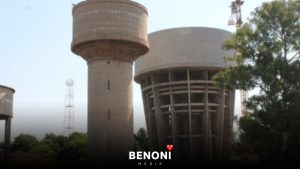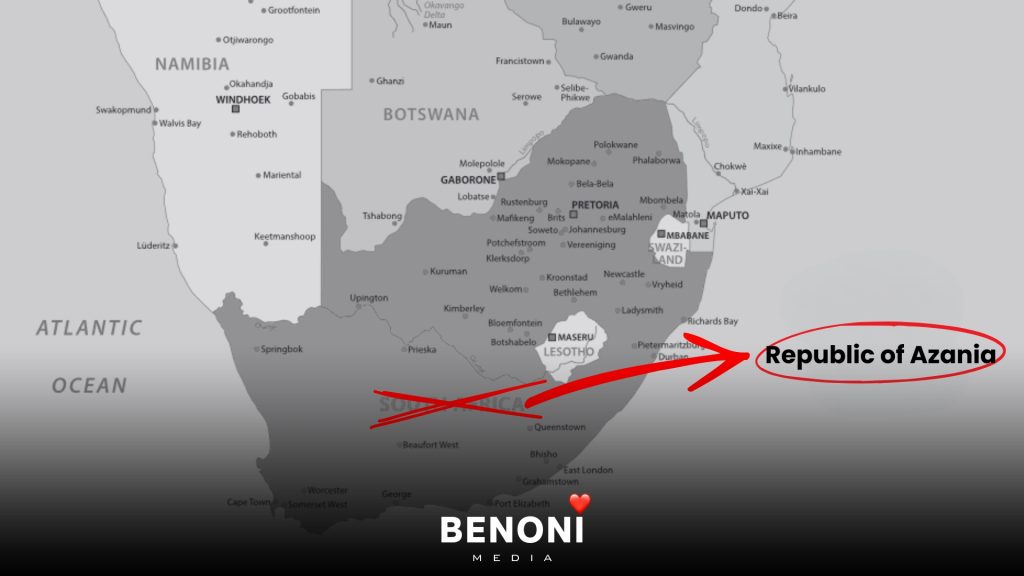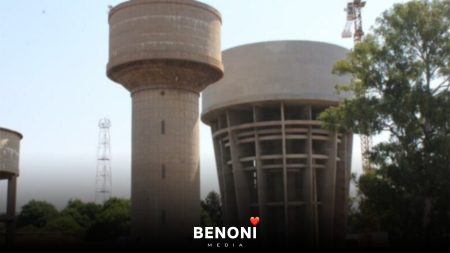The name change proposal to rename South Africa to the Republic of Azania has reignited national debate. The African Transformation Movement (ATM), along with other political parties, plans to approach Parliament and the Constitutional Review Committee to push for this bold identity shift.
Why Change the Name?
The ATM argues that the name “South Africa” is a legacy of colonialism and does not reflect the country’s authentic identity. Party president and parliamentary leader Vuyo Zungula says the name was imposed during colonial rule and is rooted in the oppressive systems created by the British and the Boers.
“Before 1652, we were not South Africans. The name ‘South Africa’ came as a result of the British and the Boers coming together to form what was called the Union of South Africa—a structure designed to further the oppression of indigenous people,” said Zungula.
He believes that renaming the country is a necessary step to reclaim national pride and cultural dignity. “All formerly colonised nations, like South West Africa, have changed their names. We now know it to be Namibia,” he said.
Republic of Azania: A Divisive Term?
The proposed new name—Republic of Azania—is not without controversy. Supporters argue it’s time to shed colonial identifiers, but critics say the new name lacks historical grounding and broad public support.
Political analyst Kenneth Mokgatlhe has dismissed the name change proposal as unnecessary and largely symbolic. He argues that the name “South Africa” is no different from other geographically descriptive names like South Sudan, Central African Republic, or North Macedonia.
Mokgatlhe also noted that “Azania” is not widely embraced and is primarily used by radical voices in academia and politics who want to symbolically reject apartheid and white supremacy.
“The name ‘Azania’ lacks authentic historical, cultural, political, or linguistic connections to South Africa and its people,” he said.
A Broader Push for Constitutional Reform
The name change proposal is just one part of a wider campaign by the ATM to revise South Africa’s Constitution. The party intends to submit multiple amendments for consideration by the Constitutional Review Committee.
1. Redefining Legal Rights
One of the proposed changes is replacing the term “everyone” with “citizens” in key sections of the Constitution. Zungula claims that the current language has led to legal ambiguities, allowing non-citizens to access rights and services meant for South Africans.
“There needs to be instances where the Constitution is very clear. When it says ‘citizen’, it should refer strictly to South African citizens,” he said.
He believes the Constitution’s original wording was designed to reassure the international community post-apartheid, but at the cost of local priorities. “It prioritised being open and inclusive at the cost of national interest and sovereignty,” Zungula argued.
2. Balancing Power Between Parliament and Courts
ATM also wants to limit the authority of the judiciary in legislative matters. According to Zungula, the courts currently hold too much power over the creation and interpretation of laws.
“We want Parliament, as the voice of the people, to be the final arbiter of laws—not the courts,” he stated.
3. Transforming Land Ownership Laws
Land reform remains a cornerstone of ATM’s agenda. The party wants to amend Section 25 of the Constitution, which limits land restitution to dispossession that occurred after 1913. Zungula says this timeline excludes many South Africans whose land was taken before that date.
In addition, ATM wants to ban land ownership by foreign nationals, arguing that their purchasing power inflates land prices and disadvantages local buyers.
“Foreign nationals must only be allowed to lease land. That is the practice in many other countries,” Zungula said.
4. Nationalising Natural Resources
Zungula also addressed South Africa’s mineral wealth, claiming that it benefits foreign companies while leaving local communities in poverty. ATM believes these resources should be owned by South Africans and managed by the state.
“We are saying the mineral wealth must be owned by South Africans and managed by the state for the benefit of the country,” he said.
What Comes Next?
The Constitutional Review Committee is expected to review all proposed amendments, including the name change proposal. If accepted, they will go to public hearings and parliamentary debate.








